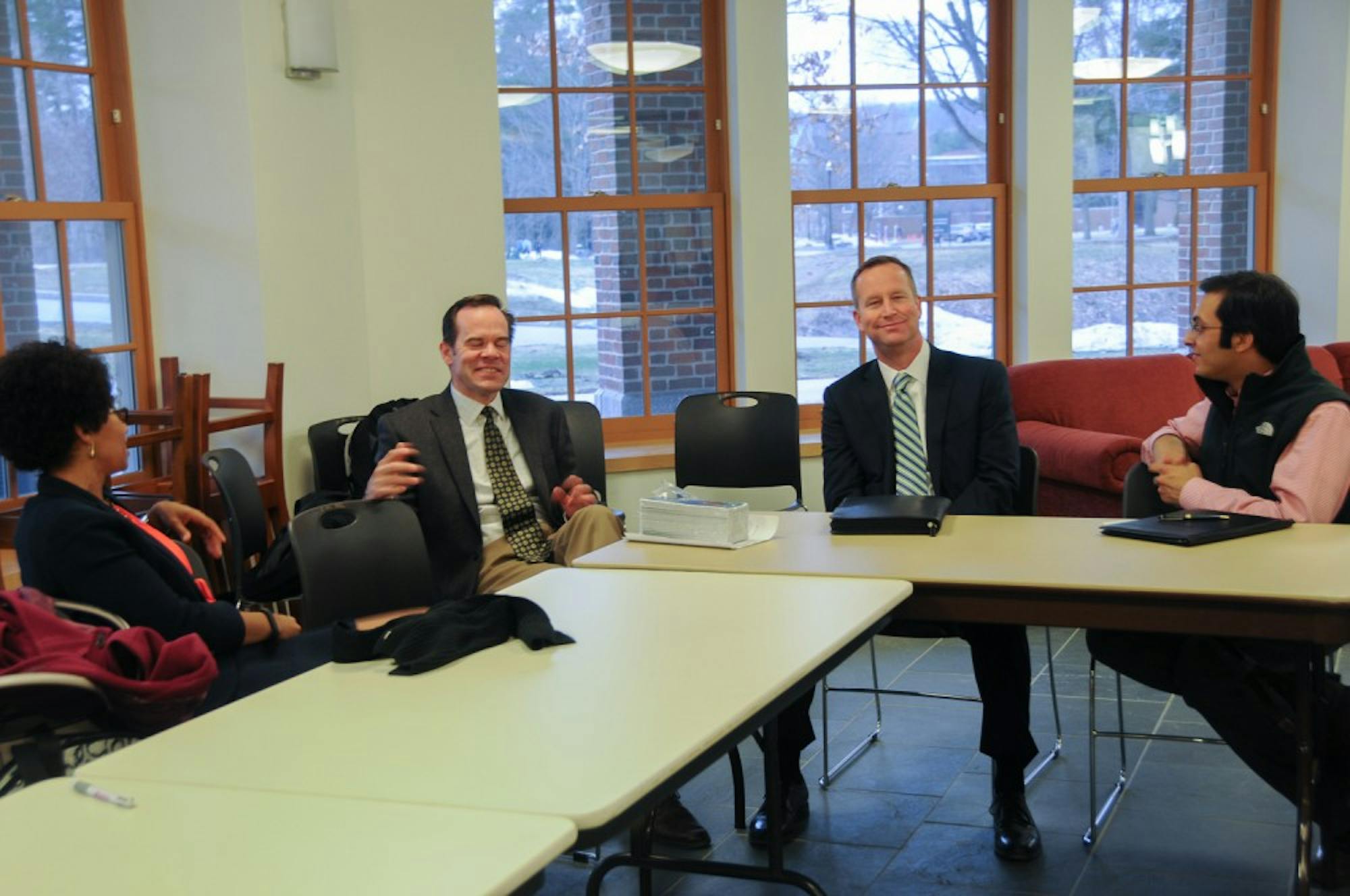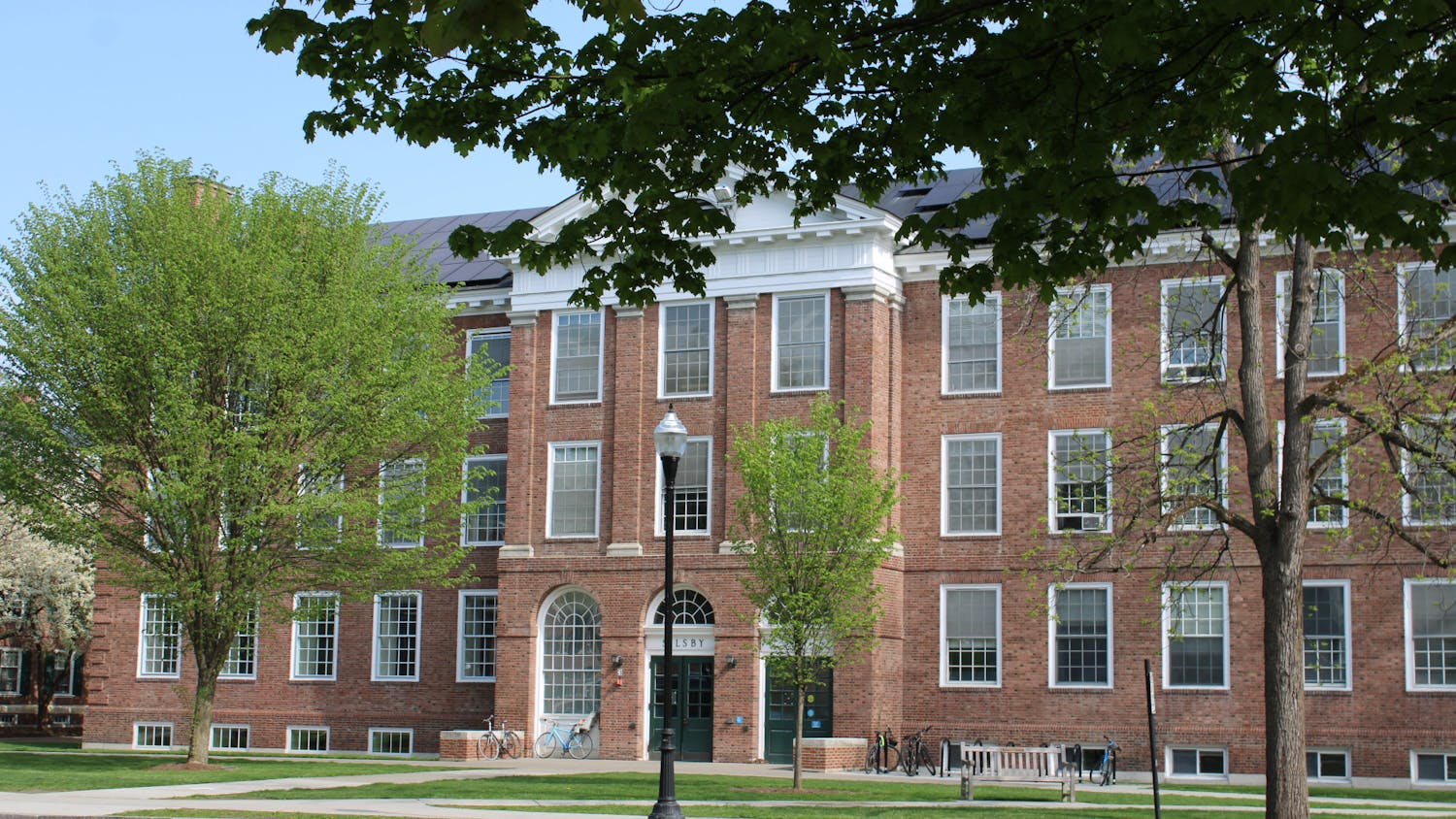Dartmouth’s difficulty in recruiting and retaining minority faculty members may derive from a preexisting lack of minority professors, tenure prospects and additional mentorship responsibilities these faculty members take on, students, faculty and staff said at the fifth set of “Moving Dartmouth Forward” discussions. Facilitated by Dean of the Faculty Michael Mastanduno and Dean of the Thayer School of Engineering Joseph Helble on Monday, the sessions focused on issues surrounding faculty recruitment and retention.
As of last fall, the College had 397 tenure and tenure-track faculty members, and about 41 percent were female, according to the College Fact Book. About 20 percent of College faculty self-identify as minorities, Mastanduno said.
Each year, departments search for 30 to 35 faculty members and eventually recruit 20 to 25, and attracting members of underrepresented minority groups can prove difficult, Mastanduno said. Dartmouth demands high-quality teaching skills and research experiences from potential faculty, he said, and as a result, the College often faces nationwide competition from the largest and most prestigious universities.
Various factors influence potential faculty’s decision to come to Dartmouth, Mastanduno said. Hanover’s cost of living, he said, is often cited as a drawback over its weather or rural environment.
The living cost in Hanover is 32 percent higher than the national average, Helble said.
Limited local jobs for faculty members’ partners, Matsanduno said, is another disadvantage. Despite Dartmouth’s “partner policy,” which requires the College to help find employment for a recruited faculty’s partner, many face fewer options in Hanover than they would in urban settings.
Mastanduno also mentioned what he called the “playmate problem,” when faculty members want to work with intellectual peers who are interested in the same subject matter. Dartmouth has a relatively small number of faculty compared to some research universities, so professors are often the only ones in their specialty.
Faculty members who attended the second session indicated that faculty retention is just as crucial as recruitment.
English professor Gretchen Holbrook Gerzina said that some junior faculty members, especially those from underrepresented minority backgrounds, may feel overburdened with the mentor relationships they take on for students from similar backgrounds.
The minority faculty members she has witnessed depart from the College, Gerzina said, listed a range of reasons for leaving, including marriage prospects and preference for city life.
“Perhaps there could have been a way to keep some of them,” Gerzina said.
Several faculty members in attendance agreed that Dartmouth needs a “critical mass” of minority faculty members across departments to motivate more minority faculty members to remain at the College.
African and African-American studies professor Reena Goldthree emphasized the role of “pipeline” programs, like the Mellon Mays Fellowship and the Ford Foundation Diversity Fellowship, in recruiting minority scholars. She said that though 72 recipients have earned Dartmouth’s Cesar Chavez, Charles Eastman and Thurgood Marshall Dissertation Fellowships at Dartmouth since 1992, few have been offered tenure-track positions at the College.
Goldthree suggested that Dartmouth faculty and administrators research and develop best practices for faculty retention.
“We have to use the same skill set we were trained to use as scholars to tackle this issue,” Goldthree said.
Instead of relying on anecdotal evidence, Goldthree proposed regular surveys measuring faculty quality of life and exit interviews with all faculty who choose to leave Dartmouth.
In the wake of the recent $100 million donation to the College, Mastanduno and Helble plan to draw new faculty to campus based on academic clusters.
The clusters, an initiative launched by College President Phil Hanlon last fall, will establish issue-based interdisciplinary partnerships on specific topics, such as digital arts or sustainability, to foster interdepartmental research.
Several students said that a lack of transparency surrounding the tenure process and the presence of few faculty of color on selection committees may contribute to lower minority faculty retention.
Kaila Pedersen ’14, who attended the evening discussion, said she was concerned about minority faculty retention, adding that she frequently discusses the issue in the Inter-Community Council and the Women of Color Collective.
Mastanduno said he plans to use the information from the discussion to plan for continuing and expanding recruitment.
This article has been revised to reflect the following correction.
Correction appended: April 15, 2014
The original version of this story mischaracterizedAfrican and African-American studies professor Reena Goldthree's statement about the career path of Dartmouth’s Cesar Chavez, Charles Eastman and Thurgood Marshall Dissertation Fellowship recipients. Few of these scholars continue ontotenure-track positions at the College, she said, instead going to other institutions. The initial version of this story said that few of these scholars have been offered tenure-track positions.




